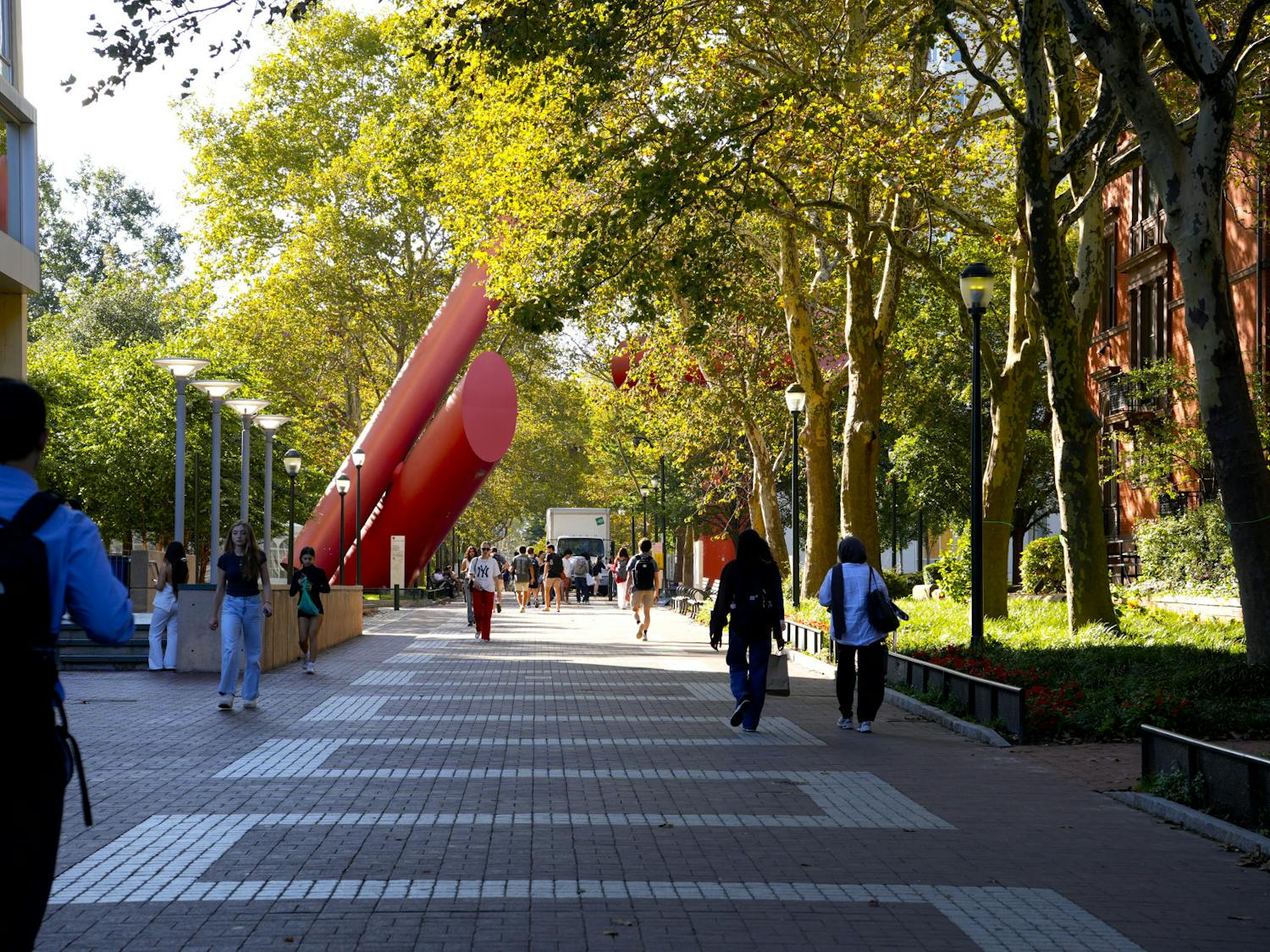First in a Series Before the "water buffalo" case and the newspaper seizure, there was ATO. There have been few major changes in University judicial procedures in the 10 years since the alleged gang rape of a University student by brothers of the Alpha Tau Omega fraternity. That is the verdict of retired Common Pleas Judge Lois Forer who said last week that the University ignored her recommendations for changing the University judicial policy in the wake of the ATO case. While the judicial charter has been more fully codified, the role of the Judicial Inquiry Officer better defined and the post of Judicial Administrator created, many of the flaws Forer found in 1984 are still present today. The case began when six ATO brothers allegedly gang raped a University student at a party at their fraternity house in February 1983. None of the brothers was brought to trial in a court of law for rape after the Philadelphia District Attorney's Office determined the case was not strong enough to make convictions likely. The student did file charges with the JIO against the brothers who allegedly raped her. These charges ended in a settlement, the terms of which included assigned reading and writing and community service. The University also took action against ATO. After the Fraternity/Sorority Advisory Board recommended a one year suspension of the fraternity, then-Vice Provost for University Life George Koval imposed stricter sanctions, revoking ATO's recognition and preventing the fraternity from recolonizing for at least a year and a half. ATO filed suit against the University to regain recognition, claiming its right to due process had been violated. The University questioned the court's right to intervene in an internal matter of a private institution. The University succeeded in convincing Common Pleas Court Judge Charles Mirarchi not to intervene. ATO appealed and won a new trial from the appellate court during the summer of 1983. That second trial was conducted by Forer. Finding the University hearing had been conducted without "even the most minimal standards of fairness" and due process, Forer overturned the revocation of ATO's charter and ordered another University hearing be conducted by now-Emeritus Law Professor Leo Levin. Among Forer's criticisms of the original hearing were: ·Investigators in the case also sat on the hearing board and acted as judges. ·"Hearsay and double hearsay" was accepted as evidence by the hearing board, which was "characterized not only by informality but also by a total lack of understanding of its functions and obligations." ·None of several eye witnesses was called to testify at the hearing. ·ATO's lawyers were not permitted to cross-examine witnesses or present oral testimony. "It was unfortunately a very mishandled affair because we never got to the bottom of what happened," Forer said last week. Forer recommended that at any future University hearing, the following rules be followed: ·The students must be given specific notice of charges. · An impartial hearing must be held, with the final judge not taking part in the investigation. · The accused must be given the opportunity to present relevant documentary and testimonial evidence. ·Attorneys must be allowed at the hearing. ·All evidence against the accused must be disclosed. ·There must be a transcript of the hearing. ·The hearing officer must make the findings of fact. At the second hearing in 1984, Levin decided the charges of rape could not be proved. He suspended ATO for six months, after which they were permitted to return to campus. The alleged victim was offered a monetary settlement from the University to prevent her from suing over its handling of the case. Since then, Forer has criticized Levin for not following her recommendations in the second hearing and the University for ignoring them in subsequent hearings. "I am hoping that whoever is in charge of the University now will sit down and make sure that the rules are codified and that a proper procedure is developed," she said. With a new president and a new JIO, she says, now is the "ideal time" to change the judicial charter.
The Daily Pennsylvanian is an independent, student-run newspaper. Please consider making a donation to support the coverage that shapes the University. Your generosity ensures a future of strong journalism at Penn.
DonateMore Like This
Penn Museum hosts 45th annual Lunar New Year celebration
By
Candice Felderer
·
10 hours ago
Wharton to face trial over $37 million contract dispute
By
Hailey Hilsabeck
·
10 hours ago








